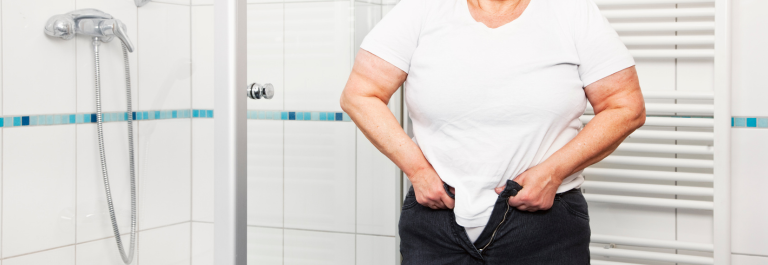Eczema, particularly atopic eczema, is a common skin condition characterized by dry skin, skin irritation, and inflammation. For many, the struggle doesn’t end there. Many people with eczema are at risk for bacterial infections that can worsen their symptoms. In this blog, we will explore:
-
The connection between eczema and staph infections.
-
How skin infections can exacerbate eczema symptoms and lead to serious complications.
-
Effective treatment options and preventive measures to manage infected eczema.
Read on to discover how understanding and addressing the risk of staph infections can help you maintain healthier skin and alleviate eczema symptoms.
What is Eczema?
Eczema, also known as atopic dermatitis, affects millions of people worldwide. Its symptoms include dry skin, eczema sores, and intense itching. Many individuals experience eczema flares that can lead to the skin becoming broken and more susceptible to infections. This is particularly troubling for eczema patients, as their skin's barrier is compromised, creating an opportunity for bacterial infections to take hold.
The Role of Staphylococcus aureus
One of the most common bacteria involved in skin infections and eczema is Staphylococcus aureus. This bacterium is often present on the skin but can cause significant problems when it invades open sores or areas of broken skin. Staph infections can manifest in various ways, including oozing blisters or swollen lymph nodes. These secondary infections, like infected eczema, can complicate treatment and lead to more severe symptoms.
Why Are Eczema Patients Prone to Staph Infections?
Eczema patients frequently experience skin barrier dysfunction, making them more vulnerable to infections. The broken skin provides an entry point for bacteria, increasing the likelihood of skin infections. In fact, research shows that nearly 90% of people with eczema have Staphylococcus aureus on their skin. This bacteria’s virulence makes it particularly concerning for those with a compromised skin barrier.
Signs of Infected Eczema
Recognizing the symptoms of an infection is crucial for timely intervention. Signs of an infected eczema may include:
-
Increased redness or swelling in the affected area
-
Presence of oozing blisters
-
Eczema sores that are worsening or not healing
-
Fever or chills, indicating a systemic infection
-
Swollen lymph nodes
If you notice these symptoms, it is essential to seek immediate medical care. Delaying treatment can lead to serious complications, including organ failure in extreme cases.
Preventing Bacterial Skin Infections
Preventing infected eczema is critical for managing this skin condition. Here are some effective strategies:
Moisturize Regularly:
Keeping the skin hydrated with quality eczema cream is one of the most effective ways to manage eczema and prevent flares. A well-hydrated skin barrier is crucial for protecting against irritants, allergens, and harmful bacteria. Consider using a beef tallow cream for deep nourishment which can lead to complications such as staph infections. We recommend our Nourish + Hydrate Manuka Balm. This natural product harnesses the healing properties of manuka honey, known for its antibacterial and anti-inflammatory benefits. Formulated to provide deep hydration, this cream not only soothes irritated skin but also helps strengthen the skin barrier, making it a perfect choice for those prone to eczema and skin infections.
Avoid Scratching:
Avoiding scratching is essential for managing eczema effectively, as it can exacerbate skin irritation and lead to open sores. Using detergent for sensitive skin can help reduce irritation from clothing, increasing the risk of infection. To help minimize the urge to scratch, we recommend the Cotton ScratchSleeves with Scratch Mittens for kids and the Cotton Adult Scratch Sleeves with Anti Scratch Mitts. These innovative products provide a soft, protective barrier that reduces skin contact, allowing your skin to heal without the temptation to scratch. The scratch sleeves are designed to be comfortable and breathable, making them perfect for day or night use. By incorporating these protective solutions into your routine, you can significantly reduce the risk of infection and promote healthier skin.
Take an Oatmeal Bath:
Taking an oatmeal bath is a soothing and effective way to manage eczema symptoms. Oatmeal has natural anti-inflammatory properties that can help calm irritated skin, reduce itching, and provide a protective barrier. These baths not only help to hydrate the skin but also create a soothing environment that can alleviate discomfort during eczema flares. To prepare an oatmeal bath, simply grind colloidal oatmeal into a fine powder and add it to warm bathwater, allowing it to dissolve completely. Its symptoms include dry skin, eczema sores, and intense itching. For young children, specialized eczema cream for babies may be necessary. Additionally, using gentle eczema soap during baths can further support skin health. Additionally, using gentle eczema soap during baths can further support skin health Regularly incorporating oatmeal baths into your skincare routine can significantly enhance overall skin hydration and support a healthier skin barrier, making it an excellent choice for those struggling with eczema.
Seek Immediate Medical Care:
If you notice signs of a skin infection, consult your doctor immediately to prevent complications.
The Connection Between Eczema and Other Infections
Eczema patients are also at risk for other types of infections, including fungal infections and viral infections like herpes simplex virus. For instance, eczema herpeticum occurs when the herpes virus infects areas of broken skin, leading to clusters of painful sores.
Take Control of Your Eczema and Skin Health Today
By staying vigilant about prevention, seeking timely treatment, and incorporating effective strategies into your routine, you can reduce the risk of infected eczema, improve your skin condition, and enhance your overall well-being. Prioritizing your skin health is essential for living a more comfortable and fulfilling life.



